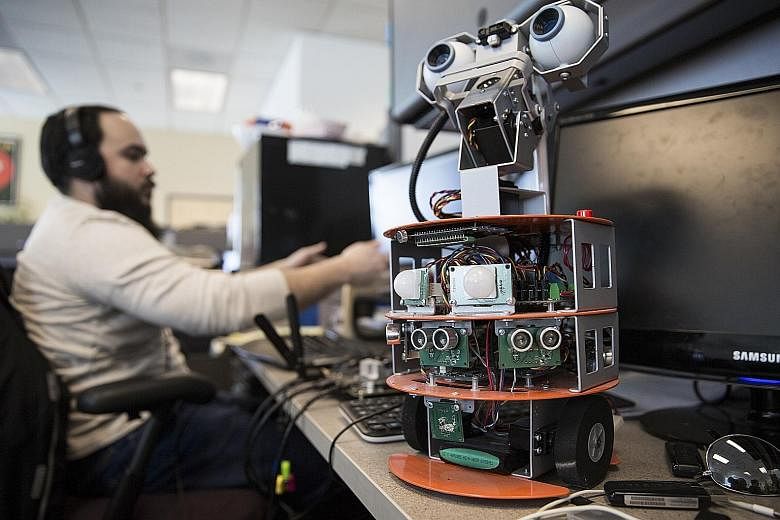HONG KONG • When the US Air Force wanted help to make military robots more perceptive, it turned to Boston-based artificial intelligence start-up Neurala.
But when Neurala needed money, it got little response from the US military. It then turned to China, landing an undisclosed sum from an investment firm backed by a state-run company.
Chinese companies have become significant investors in US start-ups in cutting-edge technologies with potential military applications.
The start-ups include those that make rocket engines for spacecraft, sensors for autonomous navy ships and printers that make flexible screens that could be used in fighter-plane cockpits.
Many of the Chinese entities are owned by state-owned companies or have connections to Chinese leaders.
The deals are causing concern in Washington.
According to a White Paper commissioned by the Department of Defence, Beijing is encouraging Chinese companies with close government ties to invest in US start-ups that specialise in critical technologies such as artificial intelligence and robots.
The aim - to advance China's military capacity and its economy.
The White Paper - distributed to senior levels of the Trump administration this week - concludes that US government controls that are supposed to protect potentially critical technologies are falling short.
This is according to three people who know about the White Paper's contents and spoke on condition of anonymity.
"What drives a lot of the concern is that China is a military competitor," said Mr James Lewis, a senior fellow at the Centre for Strategic and International Studies, who is familiar with the report.
"How do you deal with a military competitor playing in your most innovative market?"
The Chinese deals can pose a number of issues.
Investors could push start-ups to strike partnerships or make licensing or hiring decisions that could expose intellectual property.
They could also get an inside glimpse of how technology is being developed and have access to a start-up's offices or computers.
China has become more active in the US start-up scene, investing US$9.9 billion (S$13.9 billion) in 2015, according to data from research firm CB Insights, more than four times the level in the year before.
Neither the high-tech start-ups nor their Chinese investors have been accused of wrongdoing, and experts said much of the activity could be innocent.
Chinese investors have money and are looking for returns, while Beijing has pushed investment in ways to clean up China's skies, upgrade its industrial capacity and unclog its highways.
Some start-ups - especially those making hardware rather than money-drawing mobile apps like Snapchat - said Chinese money is sometimes the only available source of funding.
To demonstrate his software's capabilities to the Air Force, Neurala chief executive Max Versace said it used its software in a ground drone from Best Buy to make it recognise and follow around the service's secretary during a meeting.
"We were told by the secretary, 'Your tech is awesome, we should put it everywhere,' " he added.
"No one followed up."
Neurala finally took a minority investment from a Chinese fund called Haiyin Capital as part of a US$1.2 million funding round.
Mr Versace said the company took pains to ensure that the Chinese investor had no access to its source code or other important technological information.
NYTIMES

